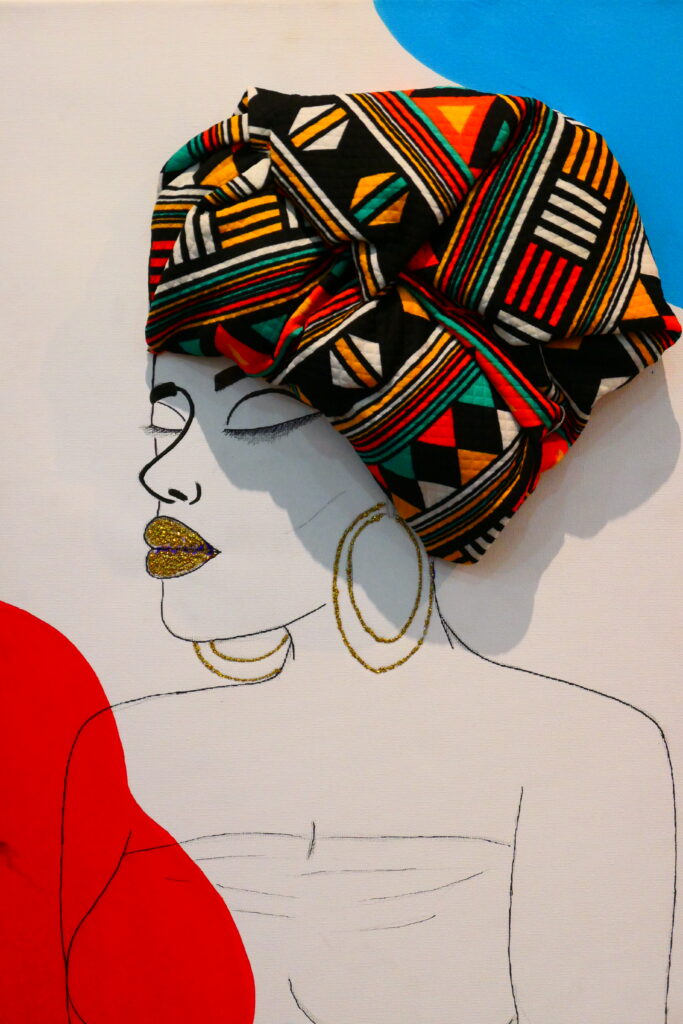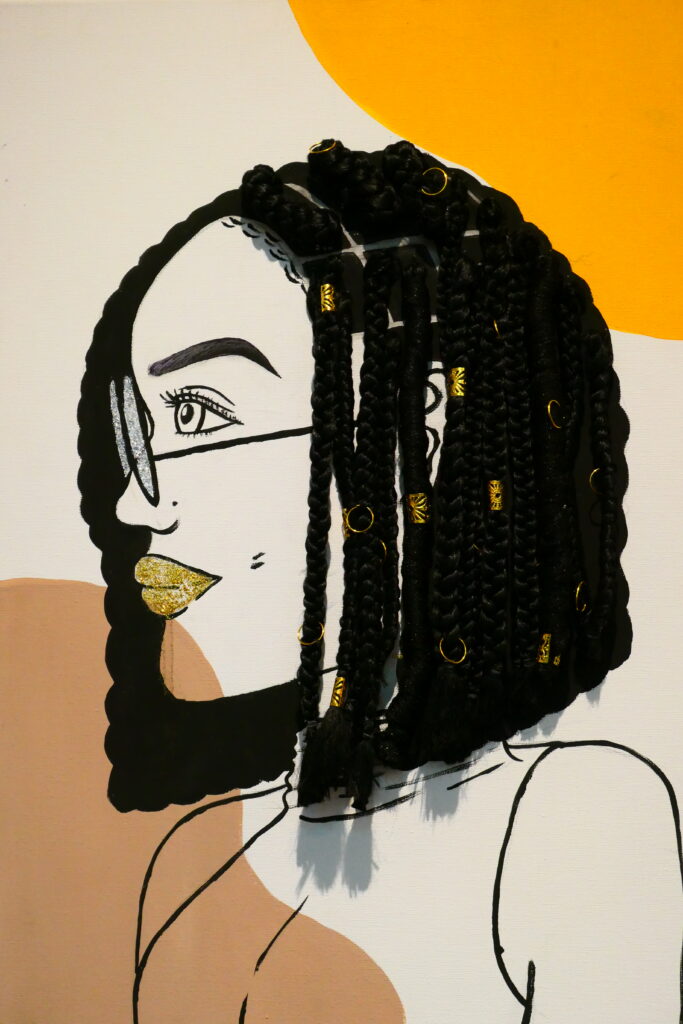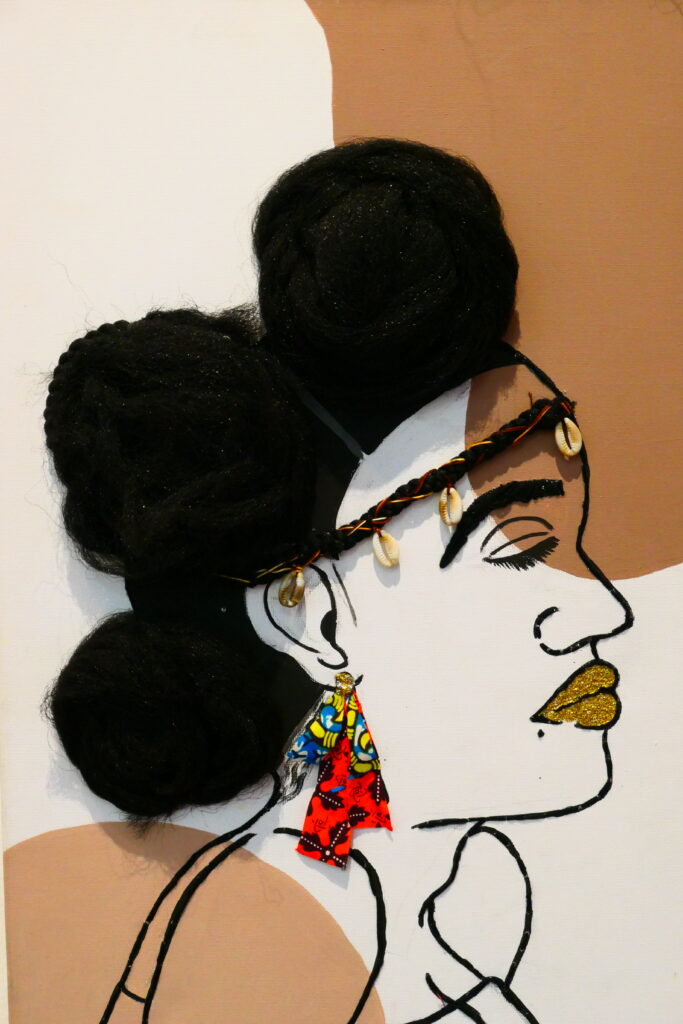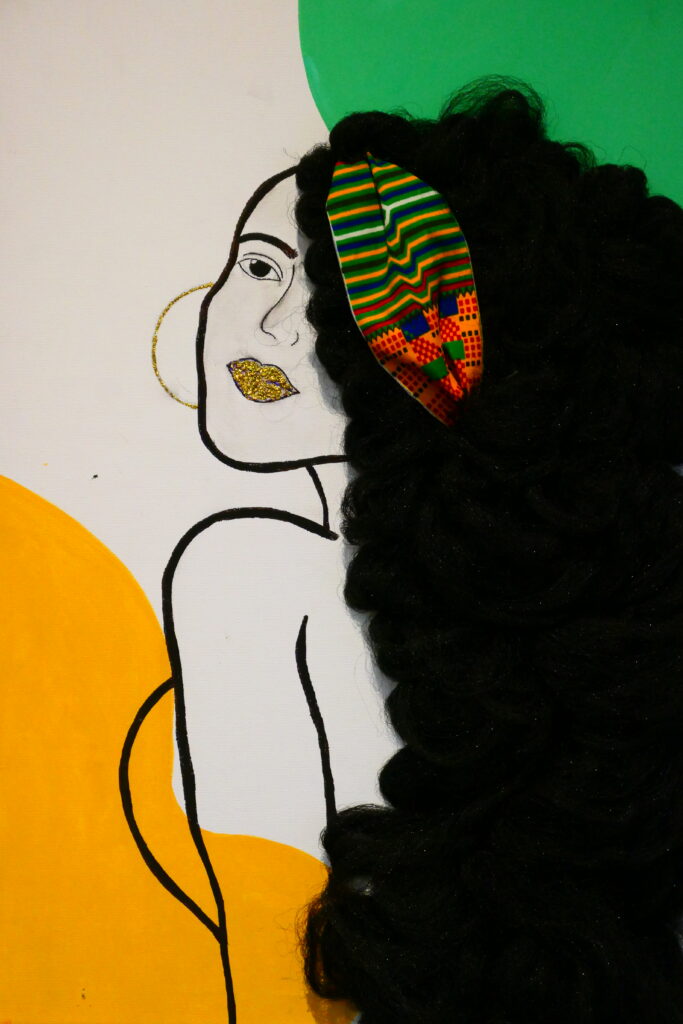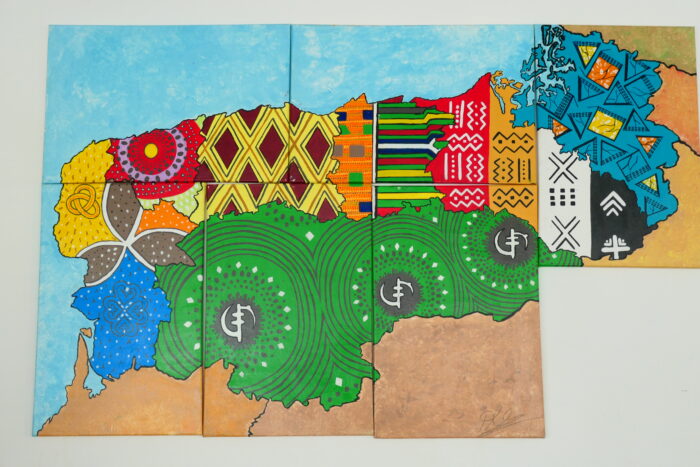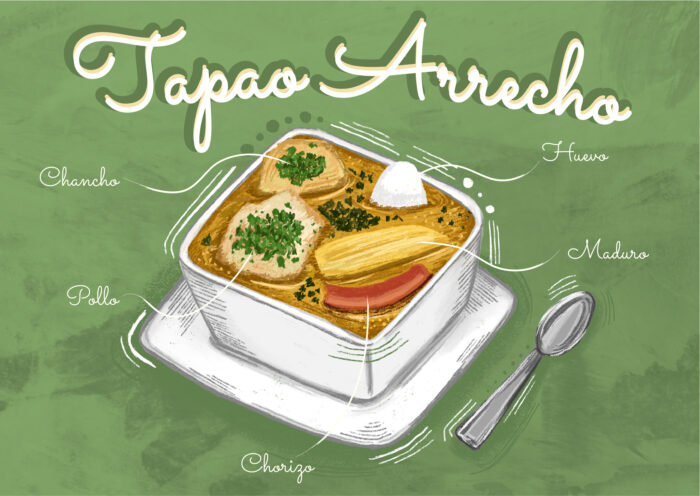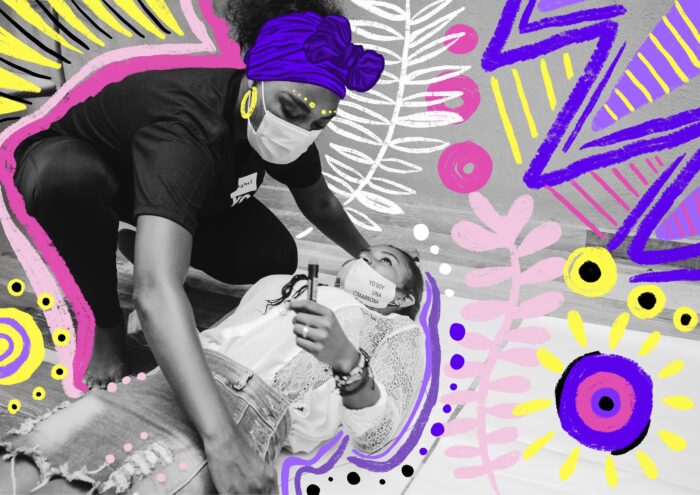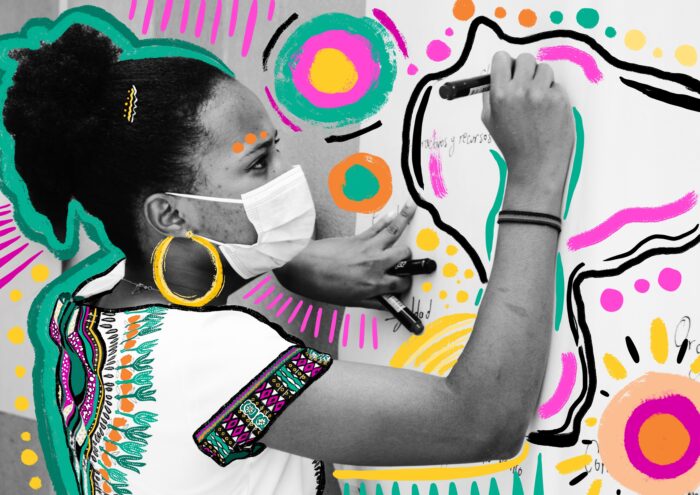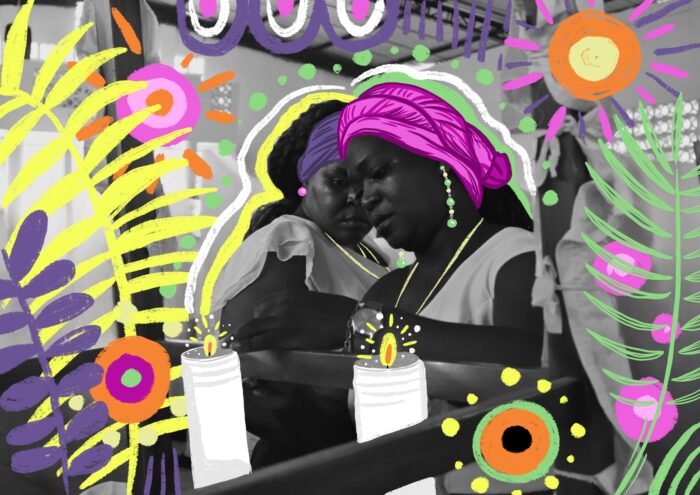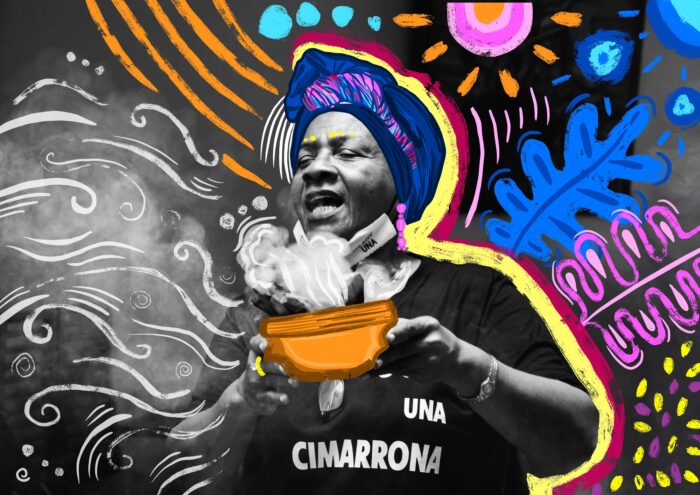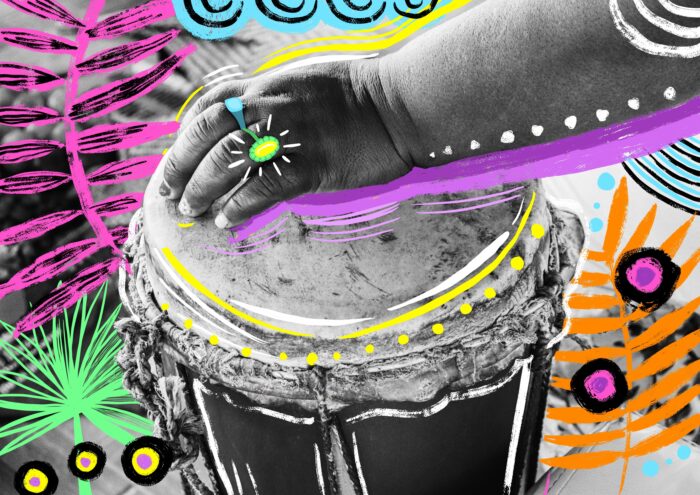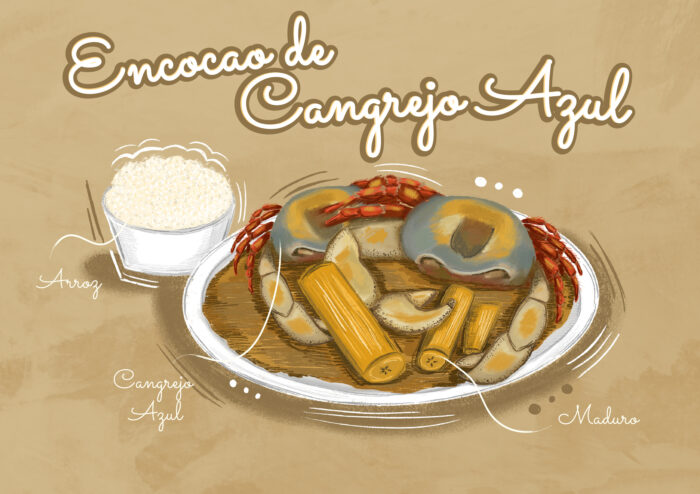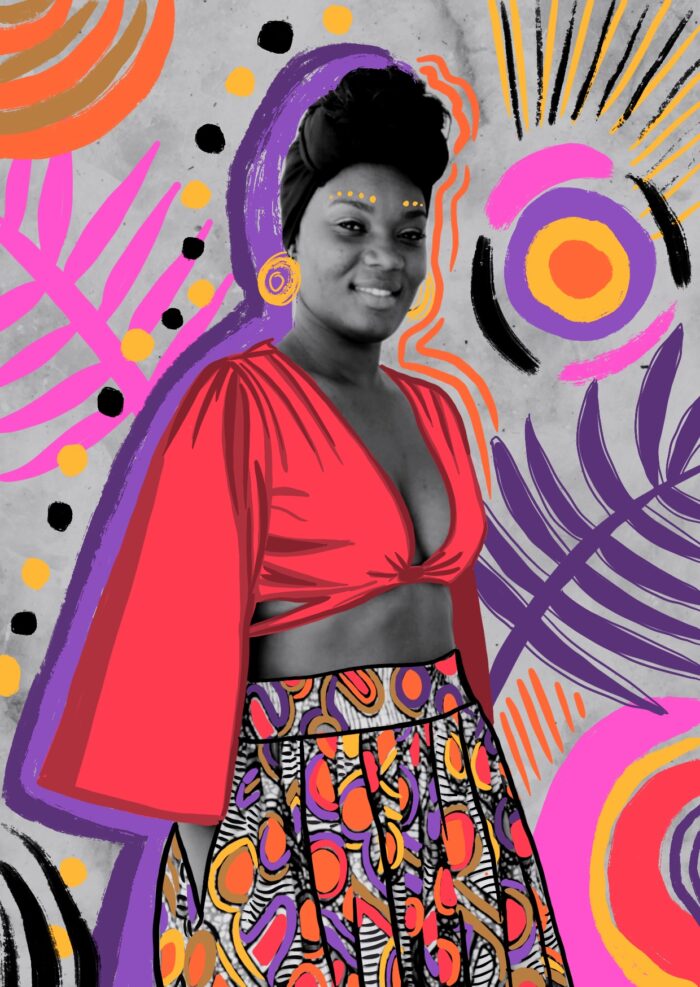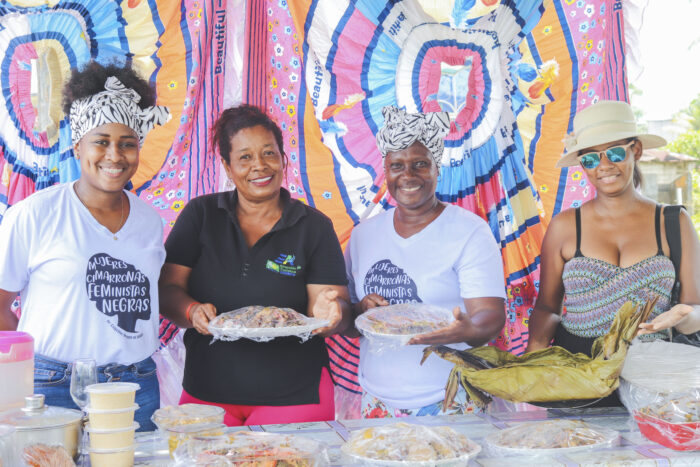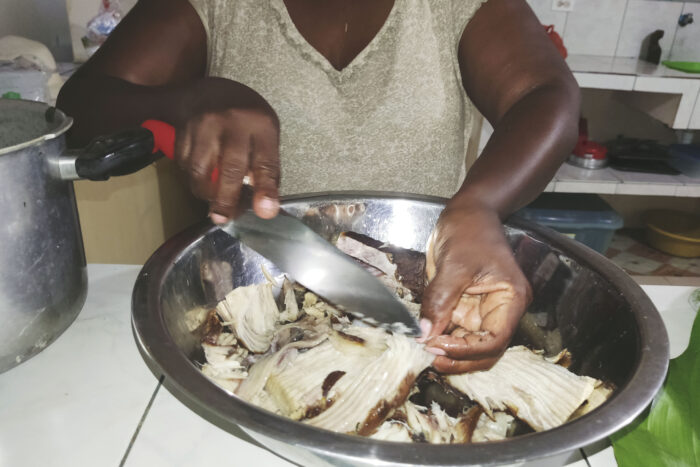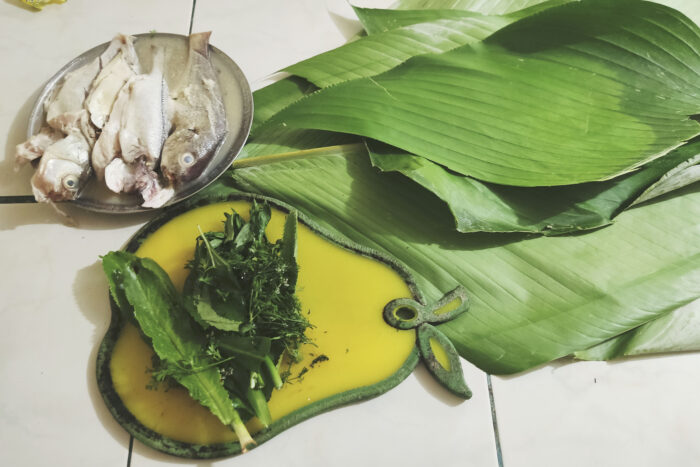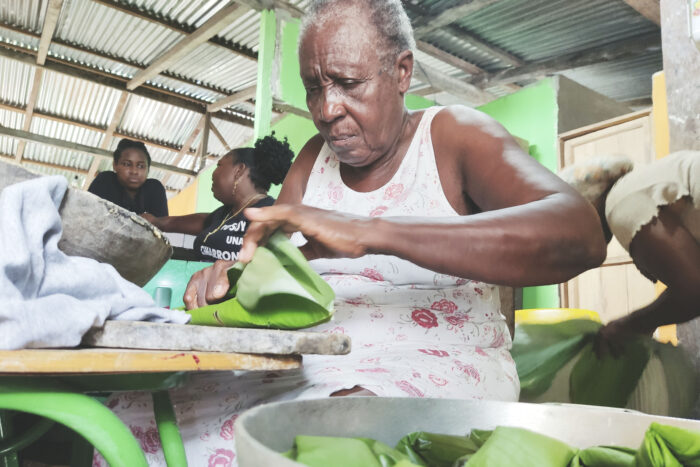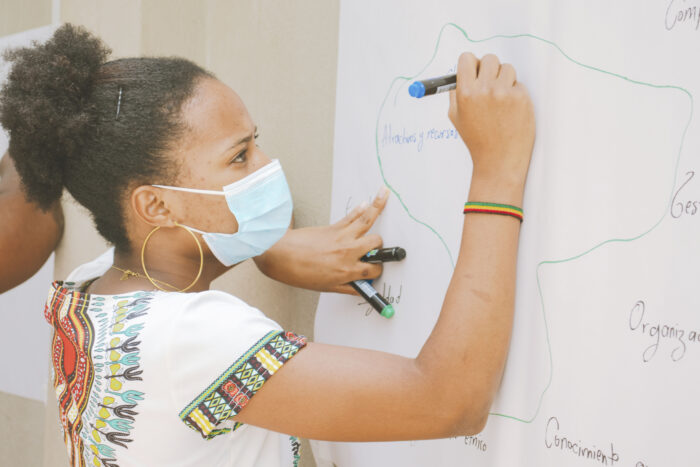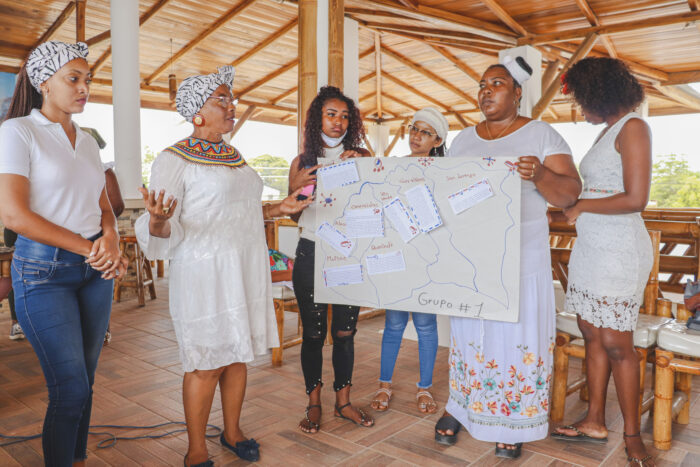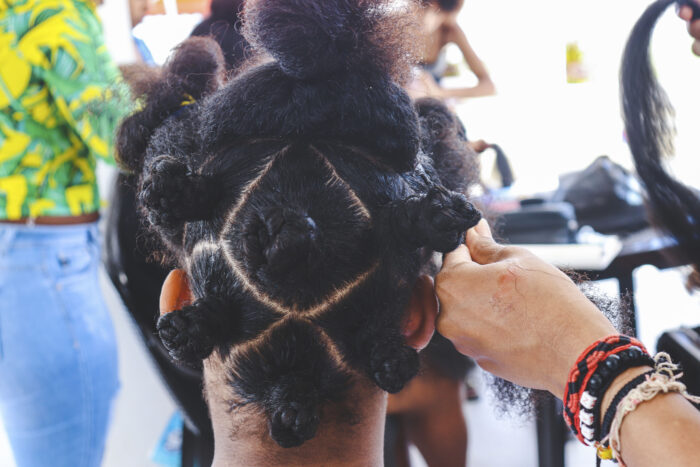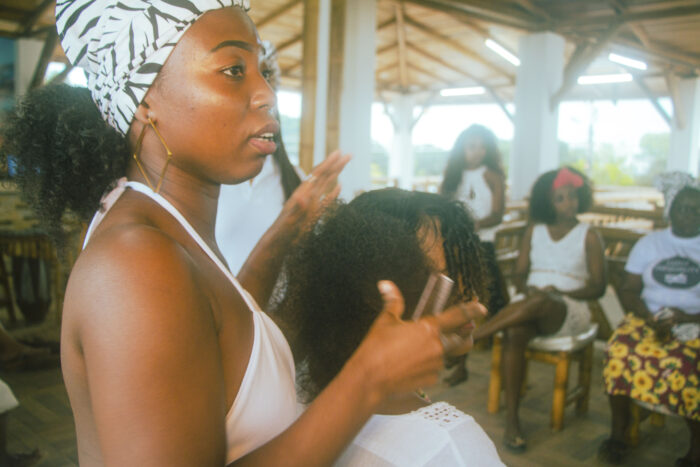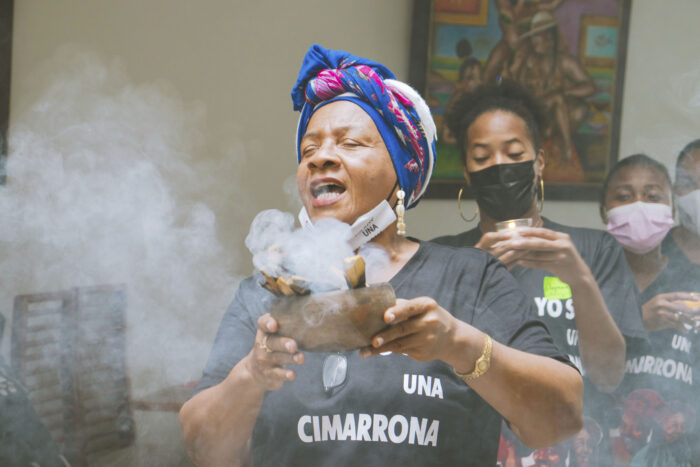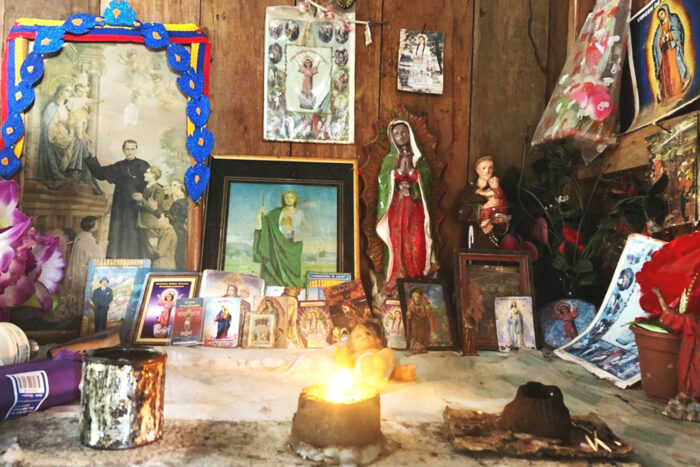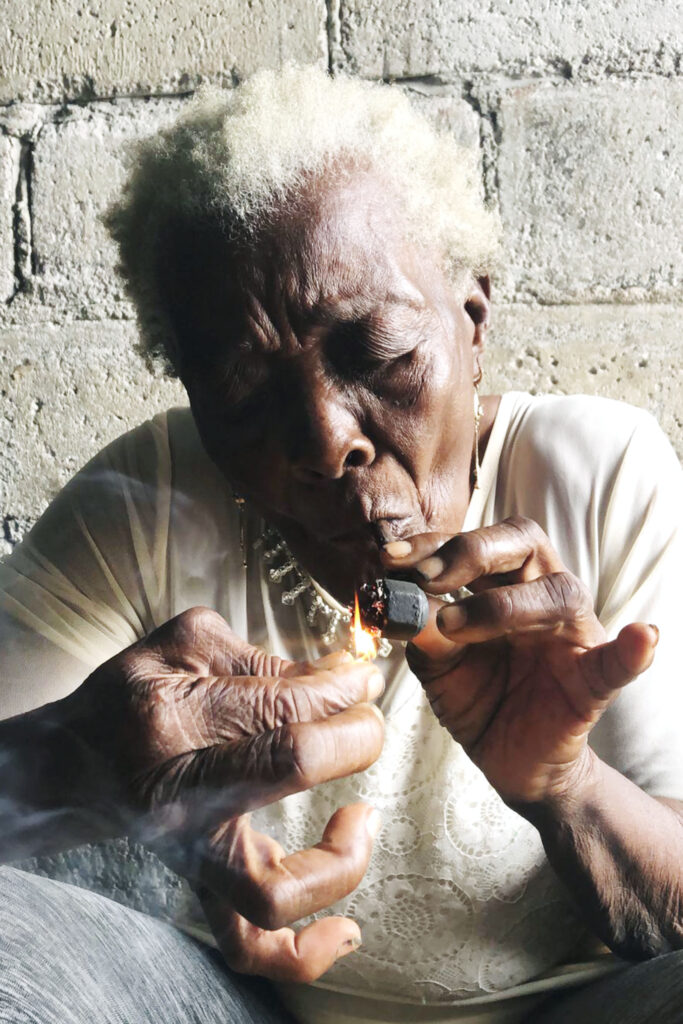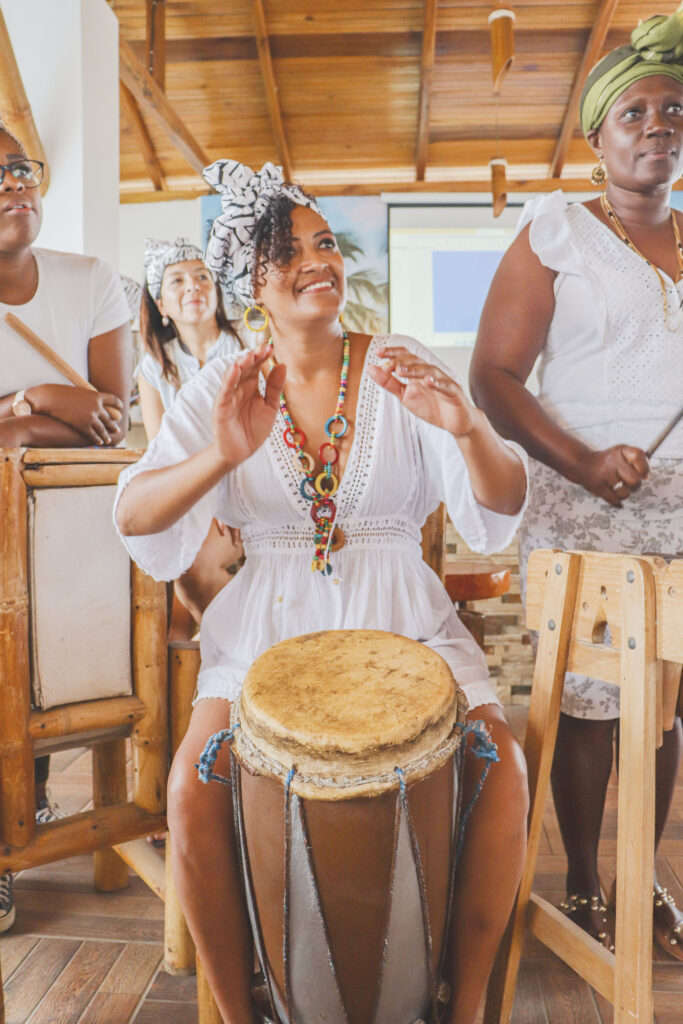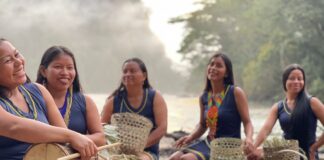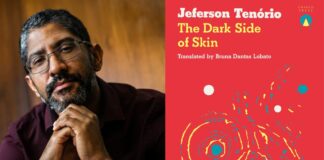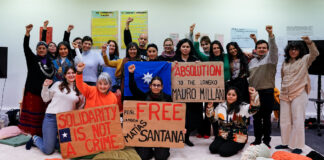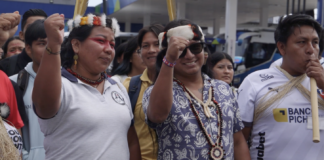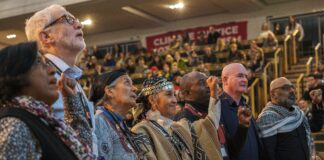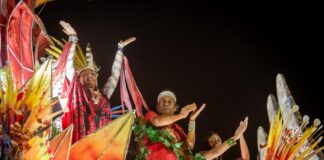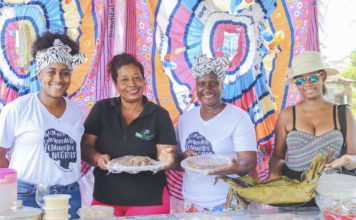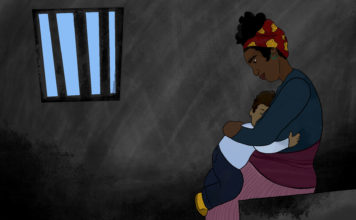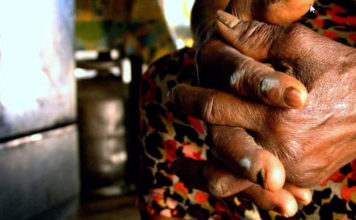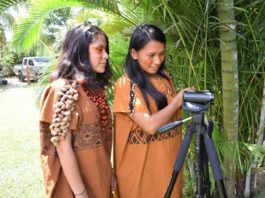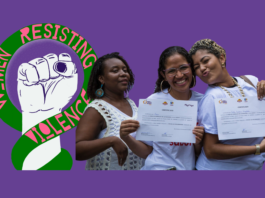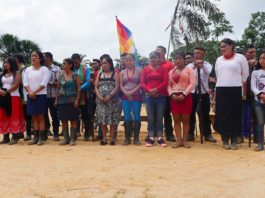RECLAMA: Harnessing Afro-Ecuadorian Women’s Heritage
What is RECLAMA?
RECLAMA (Recuperando y Celebrando la Herencia de las Mujeres Afroecuatorianas) is a decolonial, anti-racist and feminist research project which uses oral history and participatory methodologies to strengthen the cultural resistance of Afro-descendant Black women in Esmeraldas on the northern, Pacific coast of Ecuador. The project aims to document and record this rich cultural heritage, and to open up spaces for its transmission, making this knowledge more visible. Throughout the project, community researchers and guardians of memory in Ecuador have shared their experiences and knowledge through orality and art, in order to:
- Collectively create peace and sisterhood
- Fight against sexist and racist violence and extractivist capitalism that destroys territories and life itself
- Encourage sustainable development in Esmeraldas.
LAB is collaborating with the RECLAMA team in the second phase of the project, funded by the British Academy, to share learnings from the project with a wider audience, including with schools, policymakers, and the general public in Latin America and the UK.
Get in touch to organise a talk, film screening, or exhibition.
Project aims
The overall aim is to promote Afro-Ecuadorian women’s wellbeing and empowerment, through:
- Contributing to improved life chances and wellbeing for Afro-Ecuadorian women and girls, specifically through education
- Stimulating the development of policies and practices that recognise and address the marginalization and exclusion of Afro-Ecuadorian women and girls
- Building and strengthening solidarity amongst civil society actors, and contributing towards global anti-racist work.
Narrative and creation
The project’s peer researchers have collected over 60 oral history interviews with women in their communities.
A group of peer researchers and interviewees then worked together to identify key points of Afro-Ecuadorian women’s heritage:
- aesthetics
- spirituality
- gastronomy
- traditional medicine.
These aspects of their heritage are represented in a variety of artworks made by the participants, including photographs, paintings, short films, and a recipe book. Some of are available here.
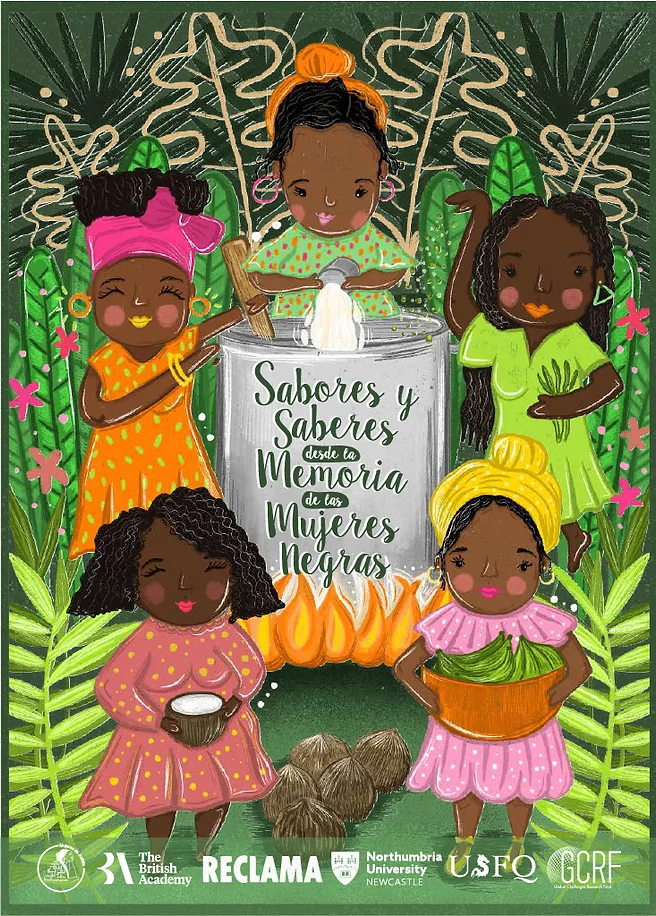 From the tapao to the ensumacao, food runs through the memory of our female ancestors in the inheritance of eating well for living well.
From the tapao to the ensumacao, food runs through the memory of our female ancestors in the inheritance of eating well for living well.
From the chillangua and the chillarán, food travels through the memory of the knowledge of eating well and living well.
From the smoke of the charcoal to the induction cooker, the cooking ritual is collectively held in our homes.
The coconut reminds us that we are a living diaspora in our journey.
Our ancestral mothers command time, memory and boundless space to maintain the vitality of the heritage left to us by the wise women who cared for us from within the womb.
The women of my family set up an altar in the kitchen, I experienced several scenes of
reconciliation around this altar.
Artworks
Photographs
Events
RECLAMA exhibition + Women Resisting Violence short film screening – Brixton House, London, 15 and 16 June 2024
15 June
- RECLAMA project presentation by Juanita and Lorena of Mujeres de Asfalto
- Live dance performance from Somos Chibchas
- Screening of short film Soberanía Alimentaria
- Exhibition of RECLAMA artworks
16 June
Women Resisting Violence short films programme featuring:
Belleza: el arte de la memoria (Mujeres de Asfalto, Ecuador) about Afro-Ecuadorian women’s beauty and aesthetics
Salir Adelante (Bruna Curcio, Brazil) about Venezuelan migrant women’s experiences
When the Lights Go Off… and the Cleaners Get In (Migrants in Action, UK) about the lives, dreams and struggles of Latin American women working in the cleaning sector in the UK
Ser Reflejo (Fi Gilligan & Brianna Barrios, UK/Colombia) about an arts collective of displaced Afro-Colombian women in Cartagena
Hilando Fronteras (Alice Volpi, Chile) an animated short narrating Colombian women’s testimonies through arpilleras they created in Antofagasta
We Still Fight in the Dark (Migrants in Action, UK), a performance film about violence against Brazilian women in London, performed by Brazilian women survivors of gender-based violence.
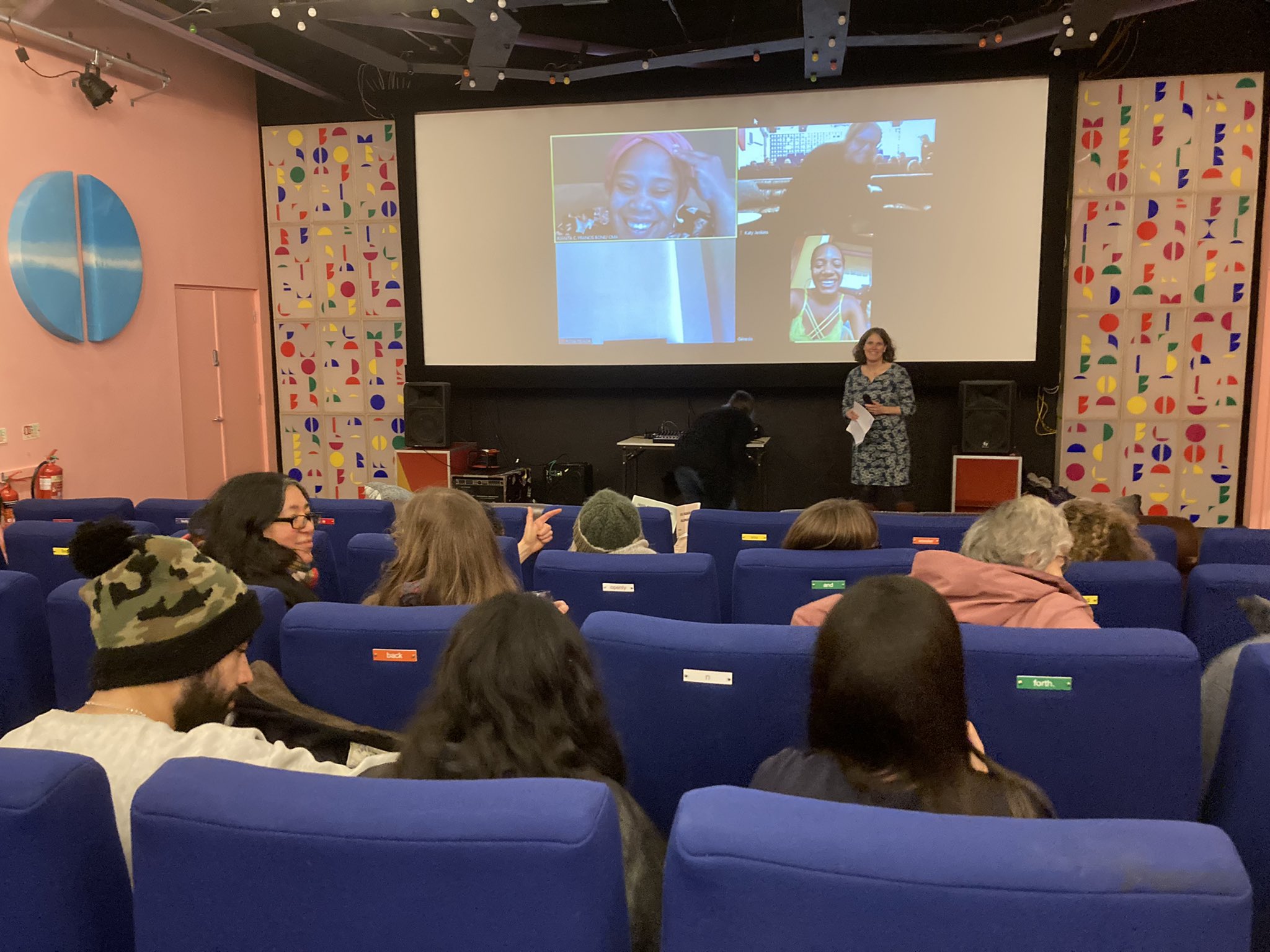 UK Film Screening & Exhibition. Star and Shadow Cinema, Newcastle. 16 November, 2022.
UK Film Screening & Exhibition. Star and Shadow Cinema, Newcastle. 16 November, 2022.
At the Star and Shadow Theatre in Newcastle, UK, the team screened the short film ‘Wimbí’ about the spiritual practices and Easter celebrations of the Afro-Ecuadorian community in Wimbí, Esmeraldas. A temporary exhibition of project photographs and artworks was held in the S&S Café, and Juanita Francis Bone, Rosa Tejada, and Génesis Castillo joined via Zoom to introduce the film and the wider project.
Speakers: Juanita Francis Bone, Rosa Tejada, and Génesis Castillo (Mujeres de Asfalto, Ecuador).
A wonderful event at @StarAndShadow last night sharing creative outputs from #ProyectoRECLAMA, and learning from @JUAKITA007, Rosa Tejada & Génesis Castillo. Thanks to all who came, asked questions and shared with us! You can still visit the exhibition in S&S cafe until Nov 22 pic.twitter.com/OhesSh6PKs
— ProyectoRECLAMA (@ProyectoReclama) November 17, 2022
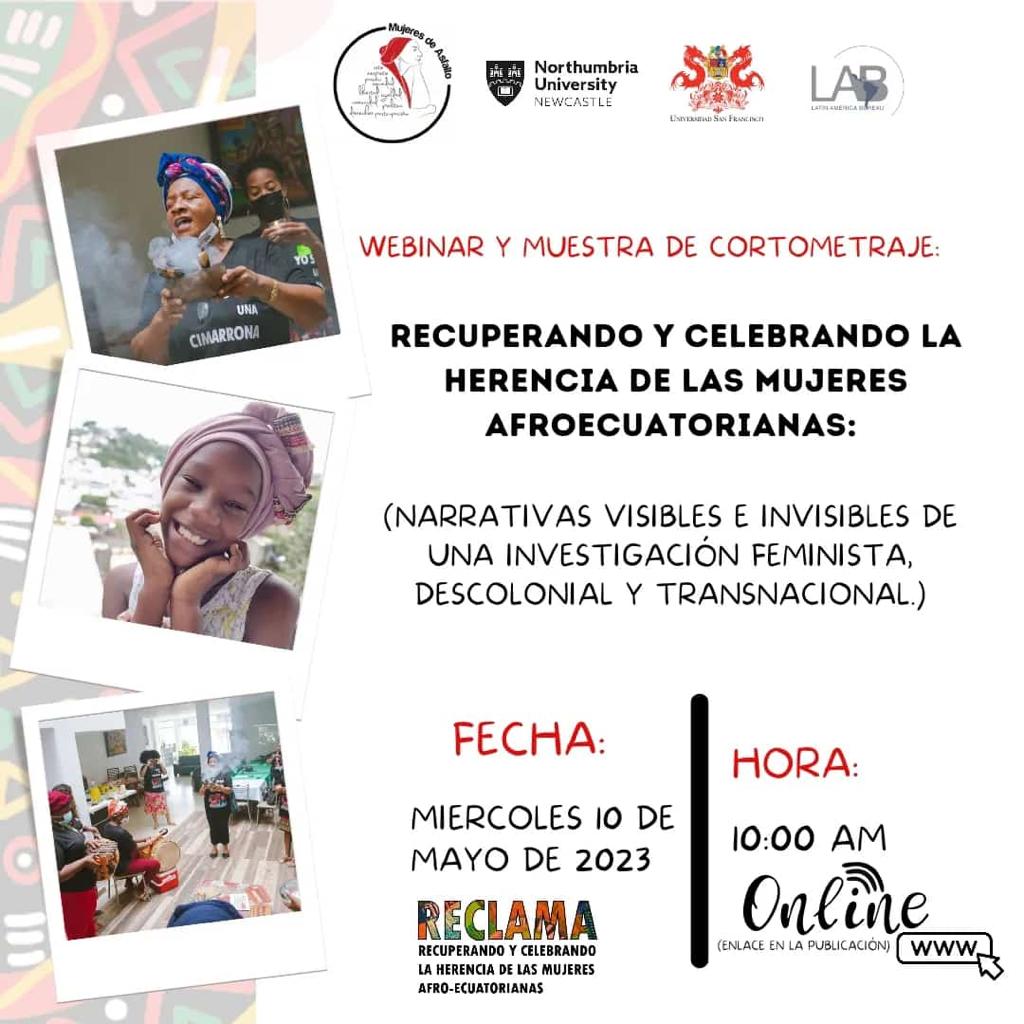 RECLAMA International Webinar. Online. 10 May, 2023.
RECLAMA International Webinar. Online. 10 May, 2023.
This international, bilingual (Spanish/Portuguese) webinar brought together women from Ecuador, Colombia, Brazil, Mexico, USA, and the UK with an afrodescendent and antiracist agenda to discuss the RECLAMA project, watch the short film ‘Beauty: The Art of Memory’, and reflect on the power of narratives and decolonial research.
Speakers: Juanita Francis Bone (Mujeres de Asfalto, Ecuador), Claudia Miranda (Black Indigenous Global Liberation Network, Brazil), Katherine Mosquera (Revista Matamba, Colombia)
Chair: Nicha Preciado (Mujeres de Asfalto, Ecuador)
Les compartimos algunas citas poderosas del webinar internacional de ayer RECUPERANDO Y CELEBRANDO LA HERENCIA DE LAS MUJERES AFRO con @MujeresAsfalto @ProyectoReclama @drkatyjenkins @MatambaRevista @BILMovement y muchas más. #CimarroneandoNuestrosFeminismos
— Latin America Bureau (LAB) (@LatAmB) May 11, 2023
Abrimos hilo 🧵 pic.twitter.com/HDLlCG8qND
Researchers and core team
The research team is composed of British and Ecuadorian professors and the Colectivo Mujeres de Asfalto and supported by LAB. Between 2019-2022 RECLAMA was funded by the Heritage, Dignity and Violence fund of the British Academy/GCRF.
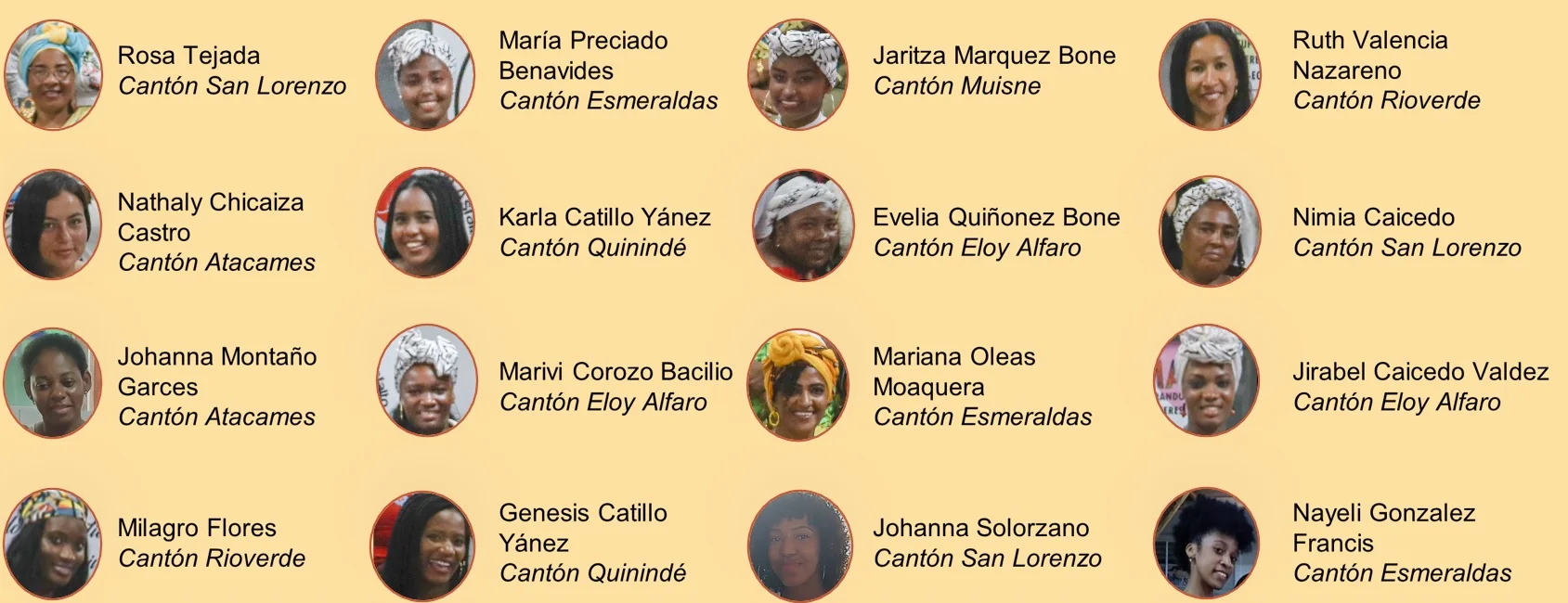
Juana Francis Bone (Colectivo Mujeres de Asfalto)
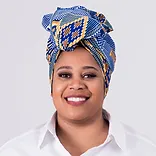 “I am a Black woman, feminist and anti-racist activist who moves between urban and rural realities. I believe faithfully in the possibility of making a better society. I am part of the Colectivo Mujeres de Asfalto and Re-existencia Cimarrunas. I hold that everything is political and everything is personal.”
“I am a Black woman, feminist and anti-racist activist who moves between urban and rural realities. I believe faithfully in the possibility of making a better society. I am part of the Colectivo Mujeres de Asfalto and Re-existencia Cimarrunas. I hold that everything is political and everything is personal.”
Claudia Cortez (Colectivo Mujeres de Asfalto)
 “I am a professional digital photographer, specialised in portraits and photographic documentary records. I also work in the audiovisual field, creating documentary videos and their post-production. Documentary filmmaking has always caught my attention and I hope to continue improving every day.”
“I am a professional digital photographer, specialised in portraits and photographic documentary records. I also work in the audiovisual field, creating documentary videos and their post-production. Documentary filmmaking has always caught my attention and I hope to continue improving every day.”
Sofia Zaragocin (Universidad San Francisco de Quito)
 “I am a research professor at the Universidad San Francisco de Quito (Ecuador) with a PhD in Geography from the University of Cambridge (UK). My research focuses on decolonial feminist geography and processes of spatial racialisation. I have written on processes of death-body-territory in cross-border spaces, the politics of the womb in spaces of slow death and mapping the criminalisation of abortion in Ecuador. I am a member of the Colectivo de Geografía Crítica del Ecuador and the Colectivo Reexistencias Cimarrunas.”
“I am a research professor at the Universidad San Francisco de Quito (Ecuador) with a PhD in Geography from the University of Cambridge (UK). My research focuses on decolonial feminist geography and processes of spatial racialisation. I have written on processes of death-body-territory in cross-border spaces, the politics of the womb in spaces of slow death and mapping the criminalisation of abortion in Ecuador. I am a member of the Colectivo de Geografía Crítica del Ecuador and the Colectivo Reexistencias Cimarrunas.”
Katy Jenkins: (Northumbria University)
 “I am is Professor of International Development at Northumbria University and Principal Investigator of the RECLAMA project. I lead on all aspects of project design and implementation. I am a development geographer and my research focuses on gender and extractivism in Latin America, with an emphasis on feminist and participatory methodologies.”
“I am is Professor of International Development at Northumbria University and Principal Investigator of the RECLAMA project. I lead on all aspects of project design and implementation. I am a development geographer and my research focuses on gender and extractivism in Latin America, with an emphasis on feminist and participatory methodologies.”
Inge Boudewijn (Northumbria University)
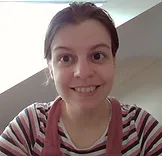 “I am a postdoctoral researcher at Northumbria University. I am interested in interdisciplinary academic work in the social sciences, particularly sociology, anthropology, and geography, as well as creative and participatory methodologies. During my PhD, I had the opportunity to work with women activists opposing large-scale mining activity in Peru.”
“I am a postdoctoral researcher at Northumbria University. I am interested in interdisciplinary academic work in the social sciences, particularly sociology, anthropology, and geography, as well as creative and participatory methodologies. During my PhD, I had the opportunity to work with women activists opposing large-scale mining activity in Peru.”
Rebecca Wilson (Latin America Bureau)
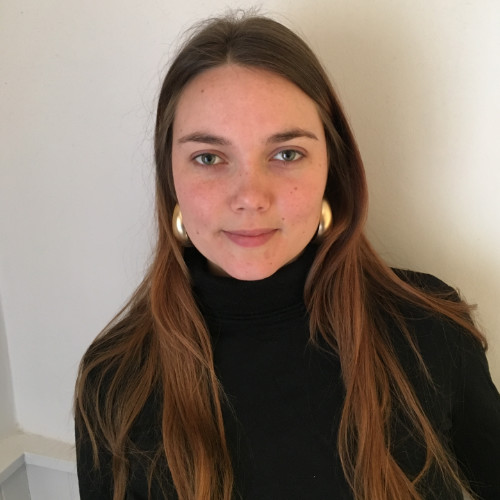 “I am managing editor at the Latin America Bureau, assisting the RECLAMA team with subtitling, events, and sharing learnings from this fantastic project with a wider audience. If you’d like to get involved or have any ideas, please get in touch.”
“I am managing editor at the Latin America Bureau, assisting the RECLAMA team with subtitling, events, and sharing learnings from this fantastic project with a wider audience. If you’d like to get involved or have any ideas, please get in touch.”
Related content
Yuturi Warmi, first Indigenous guard led by Kichwa women in Ecuador
‘The Dark Side of Skin’: race relations in modern Brazil
Moira Millán: urgent situation of Indigenous people in Patagonia
FILM: The Future is in our Territories
Solidarity with Mapuche defenders
Ailton Krenak: Samba to portray our vision
Get in touch
For more information or to discuss exhibitions and events, please get in touch here.




